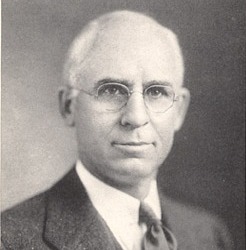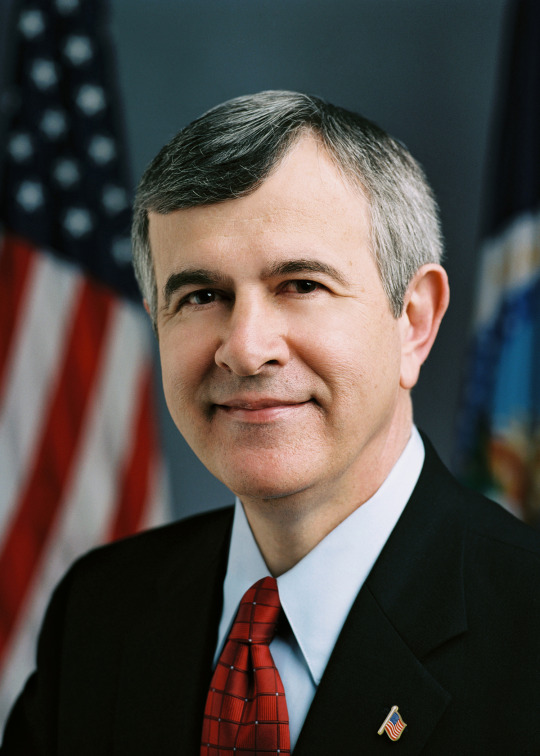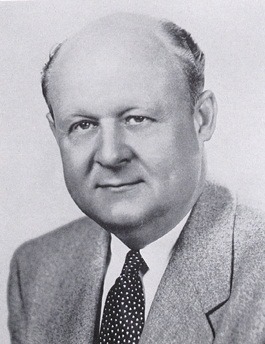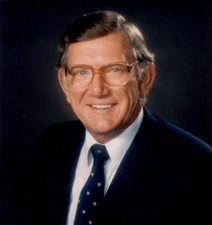#J. James Exon
Text
Nebraska Governor DILFs


















Ben Nelson, Bob Kerrey, Frank B. Morrison, Norbert Tiemann, Pete Ricketts, Arthur J. Weaver, Charles Thone, Charles W. Bryan, Dwight Griswold, J. James Exon, Robert Leroy Cochran, Dave Heineman, Dwight W. Burney, Jim Pillen, Victor Emanuel Anderson, Mike Johanns, Ralph G. Brooks, Val Peterson
#Ben Nelson#Bob Kerrey#Frank B. Morrison#Norbert Tiemann#Pete Ricketts#Arthur J. Weaver#Charles Thone#Charles W. Bryan#Dwight Griswold#J. James Exon#Robert Leroy Cochran#Dave Heineman#Dwight W. Burney#Jim Pillen#Victor Emanuel Anderson#Mike Johanns#Ralph G. Brooks#Val Peterson#GovernorDILFs
12 notes
·
View notes
Photo









J. James Exon (1921-2005)
Physique: Average Build
John James "Jim" Exon was an American Democratic politician. He served as the 33rd Governor of Nebraska from 1971 to 1979, and as a U.S. Senator from Nebraska from 1979 to 1997. Exon was a Nebraska Democrat who never lost an election, and the only Democrat to hold Nebraska's Class 2 U.S. Senate seat. He is the only Nebraskan besides George W. Norris, the architect of Nebraska's unicameral legislature, to win five consecutive statewide elections.
A gregarious, physically imposing man with a deep, gruff voice, Sen. Exon was known as “Big Jim.” With his large hands and big ears, you could probably call him “Big Jim” for another reason. His penis. I'm talking about his penis.
19 notes
·
View notes
Text
6 Greatest April Fools’ Day Pranks In History

What makes an excellent April Fools’ Day joke? It helps if it’s silly or funny, doesn’t hurt people except for perhaps a small bruise to one’s ego for believing the story, and are some things people can tease themselves for being fooled over.
While the typical prankster might put a whoopee cushion on your chair or tape a paper fish to your back, these pranksters truly went above and beyond to fool
hundreds or maybe thousands of individuals.
Here are the seven greatest April Fools’ Day pranks in history.
1)The Spaghetti-Tree Hoax:
When the BBC aired a fake news segment on April 1, 1957, for the investigative documentary show Panorama, they earned an endless spot within the April Fools’ Day Hall of Fame.
The two-and-a-half-minute news segment (which you'll watch on YouTube) showed Swiss “spaghetti farmers” harvesting the annual “spaghetti crop” by plucking spaghetti from trees, and claimed that “vast spaghetti plantations” existed.
“After picking, the spaghetti is laid bent dry within the warm sun,” the printed told viewers.
Perhaps because respected news anchor Richard Dimbleby narrated the segment and spaghetti wasn't widely eaten within the UK at the time, the BBC received many phone calls from people asking how they might grow their spaghetti.
The BBC’s response to callers best defines British humor sort of “taking the mickey”: “Place a sprig of spaghetti during a tin of spaghetti sauce and hope for the simplest .”
2)The Taco Liberty Bell:
Taco Bell learned a lesson in 1996 once they took out a full-page ad in six major newspapers. Readers of The NY Times, The Washington Post, The Philadelphia Inquirer, Chicago Tribune, The Dallas Morning News and USA Today learned that Taco Bell, in an attempt to assist reduce the country’s debt, had purchased the freedom Bell and altered its name to the “Taco Liberty Bell .”
The prank was taken so seriously that aides from the staff of Senator Bill Bradley and Senator J. James Exon called Taco Bell headquarters. In Philadelphia, the Park Service held a mid-morning press conference to assure the general public that the freedom Bell had not been sold.
By noon, Taco Bell confessed to the hoax and hoped people had liked its joke. Taco Bell also donated $50,000 to the Park Service to assist maintain the freedom Bell. There was still quite a lot of upset by those who’d been fooled and couldn’t tease themselves for being taken in.
3)Instant color television:
On April 1, 1962, eight years before regular color broadcasts aired on Swedish television, the Swedish national network presented an expert who explained to its viewers that their old black-and-white TVs didn’t get to be upgraded.
A so-called expert gave a presentation revealing that light might be bent by a fine mesh screen to form black-and-white images appear in color.
The kicker? Nylon stockings might be wont to make such a screen. Reportedly, thousands of individuals fell for the joke and tried putting nylons over their TV screens.
4)Digital Big Ben:
The BBC didn’t learn their lesson after the Spaghetti-Tree Hoax, because in 1980 it's overseas service reported that Big Ben was getting to be updated as a digital clock.
They not only fooled many of us who called into precise their anger, but they also fooled one man who called in hoping to win during an ll|one amongst|one in every of one among Big Ben’s clock hands in a fake giveaway.
5)Redefining Pi:
In 1998, a joke news story circulated online reporting that the Alabama state legislature narrowly passed a law redefining pi as “3,” saving people all the difficulty of getting to affect a seemingly never-ending number.
The whole thing clothed to be a parody, and maybe nobody would have fallen for it had its original author attribution – “April Holiday” of the “Associated Press” – not been deleted from the article because it was passed around online.
6)Have It Your Way:
Many kids growing up have fallen victim to funny fathers who asked them to travel get them their left-handed hammer. This April Fools’ Day classic has been updated by several well-known companies, but perhaps none went so big as Burger King in 1998 when it took out a full-page ad in USA Today to introduce its new “left-handed Whooper.”
The ad claimed that the left-handed Whoppers were “rotated a full 180 degrees to make sure better grip on the bun” for left-handed customers.
Burger King joined the jokesters once more in 2017 with its new Whopper Toothpaste and therefore the slogan, “It smells sort of a Whopper in here, did you sweep your teeth?”
So, once more you would like to get on guard against things that sound too silly to be true on April 1. Silly or absurd stories that crop up on the web are the order of the day most days, but on April 1 you got to concentrate and not get trapped within the farce. Good luck and don’t forget to possess amusing at yourself if you get trapped during a good joke.
0 notes
Link
0 notes
Photo



The Con Artist Collective is returning with the popular $20 Art Show, inspired by the Bread & Puppet Theater’s “Cheap Art Manifesto.” The first show was one of the biggest events in the history of the Collective, with over 1000 people, queuing in Ludlow Street for $20 art pieces. Now the show is back for a second round, featuring hundreds of artists, over 500 original 4x6 sized works of art, $20 each. Recognized artists like Greg Mishka, Wizard Skull, Atomiko and DEK 2DX are supporting the show and the manifesto, making their art affordable for everyone here at Con Artist.
On View: June 26th to June 30thOpening Party Wednesday, 28th 2017 from 7pm to 11pm "Art is food! You can't eat it, but it feeds you. Art has to be cheap and available to everybody." - Bread and Puppet Theater, Glover Vermont, 1984 This popular show of 4x6 original works returns for 2017! Come browse hundreds of postcard sized originals. Everything $20. No reproductions or prints, all one-of-a-kind. Pursue work from 500+ artists and members of the Con Artist Collective. Big names and emerging artists alike! Something for every taste, at a price everyone can afford.
Hundreds of artists will be taking part in the show. Our growing confirmed list of artists:Greg Mishka, DEK 2DX, Yai, Tom Bold, Atomiko, Ivette Urena, Hektad, Ader, Wizard Skull, Al Saulso, Exoned Stickers, JSTAR, Sfauno, ZROPRO, Pillasbros, Jason Martinez, Ian Kualii, Hiss xx, Serenity Smith, A Lucky Rabbit, Yes Yes It's Blessed, BluDog, Curb Your Ego, Scott Dyer, Gazoo to the moon, Grimace, Kerry NYC, Nkone, Rage, Royce Bannon, Sharpy, SD, Sofa Ghost, goatbunny, Astism, Diego_127, Adage, Adriana J Garces, Noter, Alex Romaro, Angelonce, Arrex Skulls, ArtweAll, TSF, Ashley Macias, Bare Bonez, Becsart, Bernstah, Shana Pederson, Cist One, Cones, Richie, RH Doaz, Drew, EL Toro, Daisy Rosetti, Erica Johnson, Naked Naks, Hello Kitska, Imamaker, Intellegent Outcasts, Elizabeth Brice-Heames, Ike Sanchez, James Orchard-Hays, Undead, Penny Pinch, Jennie West, Jonny Real, Jan, Jude Lobasso, junkyard, King Bee, Leaf, L. CooL, jenny lane , Miguel Ibarra, Originative Creations, Sabin De Pierro, Phil, Smurfo udirty, Snakeyjakie, Daniel Rodriguez, Fobia, The Sketch Company, Cycy Punkero, RICHelDIOS, Pez, UR?, Kim Tateo, Inmmezzure, Airrat, Andrea Cook, Josef Pinlac, MOR, Benjamin, Clarke, Derti The Ripper, Jill Gewirtz, Dega, One Tooth, Jason Mamarella, Trice, Umii, Nite Owl, Jcorp, Cool666 and so many others…
#alsaulso#conartistcollective#streetart#new artwork#new artist#affordability#craymagazine#fun#artist
1 note
·
View note
Text
7 Greatest April Fools’ Day Pranks In History

What makes an excellent April Fools’ Day joke? It helps if it’s silly or funny, doesn’t hurt people except for perhaps a small bruise to one’s ego for believing the story, and are some things people can tease themselves for being fooled over.
While the typical prankster might put a whoopee cushion on your chair or tape a
paper fish to your back, these pranksters truly went above and beyond to fool hundreds or maybe thousands of individuals.
Here are the seven greatest April Fools’ Day pranks in history.
The Spaghetti-Tree Hoax
When the BBC aired a fake news segment on April 1, 1957 for the investigative documentary show Panorama, they earned endless spot within the April Fools’ Day Hall of Fame.
The two-and-a-half-minute news segment (which you'll watch on YouTube) showed Swiss “spaghetti farmers” harvesting the annual “spaghetti crop” by plucking spaghetti from trees, and claimed that “vast spaghetti plantations” existed.
“After picking, the spaghetti is laid bent dry within the warm sun,” the printed told viewers.
Perhaps because respected news anchor Richard Dimbleby narrated the segment and spaghetti wasn't widely eaten within the UK at the time, the BBC received many phone calls from people asking how they might grow their spaghetti.
The BBC’s response to callers best defines British humor sort of “taking the mickey”: “Place a sprig of spaghetti during a tin of spaghetti sauce and hope for the simplest .”
The Taco Liberty Bell
Taco Bell learned a lesson in 1996 once they took out a full-page ad in six major newspapers. Readers of The NY Times, The Washington Post, The Philadelphia Inquirer, Chicago Tribune, The Dallas Morning News and USA Today learned that Taco Bell, in an attempt to assist reduce the country’s debt, had purchased the freedom Bell and altered its name to the “Taco Liberty Bell .”
The prank was taken so seriously that aides from the staff of Senator Bill Bradley and Senator J. James Exon called Taco Bell headquarters. In Philadelphia, the Park Service held a mid-morning press conference to assure the general public that the freedom Bell had not been sold.
By noon, Taco Bell confessed to the hoax and hoped people had liked its joke. Taco Bell also donated $50,000 to the Park Service to assist maintain the freedom Bell. There was still quite a lot of upset by those who’d been fooled and couldn’t tease themselves for being taken in.
Instant color television
On April 1, 1962, eight years before regular color broadcasts aired on Swedish television, the Swedish national network presented an expert who explained to its viewers that their old black-and-white TVs didn’t got to be upgraded.
A so-called expert gave a presentation revealing that light might be bent by a fine mesh screen to form black-and-white images appear in color.
The kicker? Nylon stockings might be wont to make such a screen. Reportedly, thousands of individuals fell for the joke and tried putting nylons over their TV screens.
Digital Big Ben
The BBC didn’t learn their lesson after the Spaghetti-Tree Hoax, because in 1980 it's overseas service reported that Big Ben was getting to be updated as a digital clock.
They not only fooled many of us who called into precise their anger, but they also fooled one man who called in hoping to win during an ll|one amongst|one in every of"> one among Big Ben’s clock hands in a fake giveaway.
In 1998, a joke news story circulated online reporting that the Alabama state legislature narrowly passed a law redefining pi as “3,” saving people all the difficulty of getting to affect a seemingly never-ending number.
The whole thing clothed to be a parody, and maybe nobody would have fallen for it had its original author attribution – “April Holiday” of the “Associated Press” – not been deleted from the article because it was passed around online.
Have It Your Way
Many kids growing up have fallen victim to funny fathers who asked them to travel get them their left-handed hammer. This April Fools’ Day classic has been updated by several well-known companies, but perhaps none went so big as Burger King in 1998 when it took out a full-page ad in USA Today to introduce its new “left-handed Whooper.”
The ad claimed that the left-handed Whoppers were “rotated a full 180 degrees to make sure better grip on the bun” for left-handed customers.
Burger King joined the jokesters once more in 2017 with its new Whopper Toothpaste and therefore the slogan, “It smells sort of a Whopper in here, did you sweep your teeth?”
So, once more you would like to get on guard against things that sound too silly to be true on April 1. Silly or absurd stories that crop up on the web are the order of the day most days, but on April 1 you got to concentrate and not get trapped within the farce. Good luck and don’t forget to possess amusing at yourself if you get trapped during a good joke.
0 notes
Text
The law that made Facebook what it is today
http://bit.ly/2qqqDkP
Cutouts depicting Facebook CEO Mark Zuckerberg wearing 'Fix Fakebook' displayed on Capitol Hill on April 10, 2018. AP Photo/Carolyn Kaster
Facebook is facing a reckoning in the court of public opinion for how the social media giant and its partners handle customer data.
In the court of law, holding Facebook responsible for its actions has been quite a bit harder.
CEO Mark Zuckerberg has been hauled in front of Congress to apologize for a data scraping scandal – a scandal that quickly followed an outcry that the site had been exploited by Russia during the 2020 election.
It’s rare to see a social media company pay consequences for its actions – or inactions – because of a broad immunity shield that some in Congress are rethinking.
The story starts 22 years ago. That’s when a defamation suit was brought by the now-shuttered investment firm Stratton Oakmont against the operator of an online discussion board. The name Stratton Oakmont may sound familiar. That’s because the brokerage was made infamous by Martin Scorsese’s “The Wolf of Wall Street.” The suit prompted Congress to protect the hosts of discussion boards – and, as it now turns out, social networking sites as well.
For the past four years, I’ve taught a college course that considers the importance of that law, the Communications Decency Act, in making today’s social media industry economically feasible. Arguably, that law created a climate in which the Facebooks of the world came to believe that anything bad happening to their users was someone else’s fault.
Let’s take a quick spin through the history.
‘Family-friendly’ internet
Prodigy screenshot circa 1988. Benj Edwards, CC BY-ND
In 1984, Prodigy Communications Corp. launched as a pioneering entrant into the first rudimentary wave of internet service providers. To compete with much-larger CompuServe, Prodigy promoted its services as “family oriented,” promising to moderate pornographic material.
In October 1994, a commenter on a Prodigy discussion board posted a string of accusations about fraudulent stock offerings promoted by Stratton Oakmont. The commenter called the company “a cult of brokers who either lie for a living or get fired.” To anyone who has seen Scorsese’s film, this seems prescient and understated. Regulators shut down Stratton in 1996, and its founder went to prison for securities fraud.
Nontheless, Stratton sued Prodigy for libel. In a 1995 ruling that shook the nascent industry, a New York judge ruled that ISPs could be held liable as “publishers” of their customers’ content. The judge wrote that Prodigy “held itself out as an online service that exercised editorial control over the content of messages posted on its computer bulletin boards, thereby expressly differentiating itself from its competition and expressly likening itself to a newspaper.” And like a newspaper, Prodigy could be sued over injurious material in reader submissions just as if the submissions were the company’s own words.
The ruling sent a worrisome message to the industry: Stop taking down harmful or offensive material, or you’ll be liable as the “publisher” of whatever remains.
Congress was alarmed.
Congress raises the deflector shields
Nebraska Sen. J. James Exon, an outspoken opponent of “cyberporn,” leveraged outcry over the Stratton case to help pass what became the Communications Decency Act. The CDA made it illegal to knowingly use internet services to transmit obscene material to minors. But Section 230 of the statute made two crucial concessions that – unforeseeably to Congress in 1996, seven years before the debut of MySpace – paved the way for the explosive growth of the social web.
First, the act holds only the actual creators of harmful content liable for its consequences.
Second, the act prevents liability for good-faith attempts to moderate “objectionable” material. This means immunity is not forfeited by removing offensive reader submissions. Today, this enables The New York Times to screen comments on its website without accepting liability for them.
In other words, Congress elected to treat the Prodigies of the world – eventually including Facebook – as no more responsible for the acts of their users than the telephone company. Just as AT&T is not liable for obscene phone calls placed by customers, neither an ISP nor any website with reader interactivity is the “publisher” of its users’ submissions.
Traditional publishers are liable for the consequences of the speech they print, even if that speech comes from outsiders who were neither paid nor solicited to submit. If The New Yorker carries a letter to the editor falsely calling someone a criminal, the magazine can be held liable alongside the letter writer. The theory is that the editors chose the letter and had the opportunity to fact-check it.
In this way, Section 230 represents a breathtaking recalibration of liability law. In effect, the online publishing industry has convinced Congress that its capacity to distribute harmful material is so vast that it cannot be held responsible for the consequences of its own business model.
To be clear, social media sites can still be liable for how their own employees mishandle user data, or for breaching promises made to customers in their terms of service, neither of which requires treating the sites as “publishers.”
The CDA is widely credited for the flourishing of YouTube, Yelp and other sites that rely on user submissions. It is also faulted for some of the social web’s worst excesses. Law professor Danielle Citron, author of the influential 2014 book “Hate Crimes in Cyberspace,” highlights how CDA immunity makes “revenge porn” possible by enabling websites to refuse demands to unpublish even the most intrusive content.
Those injured by reader-submitted content may still pursue legal action directly against the authors – if they can be found. A robust body of case law governs when a website host can be forced to “unmask” the credentials of its users. But – as with the Macedonians purveying “fake news” on Facebook – those authors may be beyond the reach of American courts, or lack the capacity to pay meaningful damages. That may leave those wronged with nothing but an earnest apology from a billionaire tech entrepreneur.
Frank LoMonte does not work for, consult, own shares in or receive funding from any company or organisation that would benefit from this article, and has disclosed no relevant affiliations beyond their academic appointment.
0 notes









